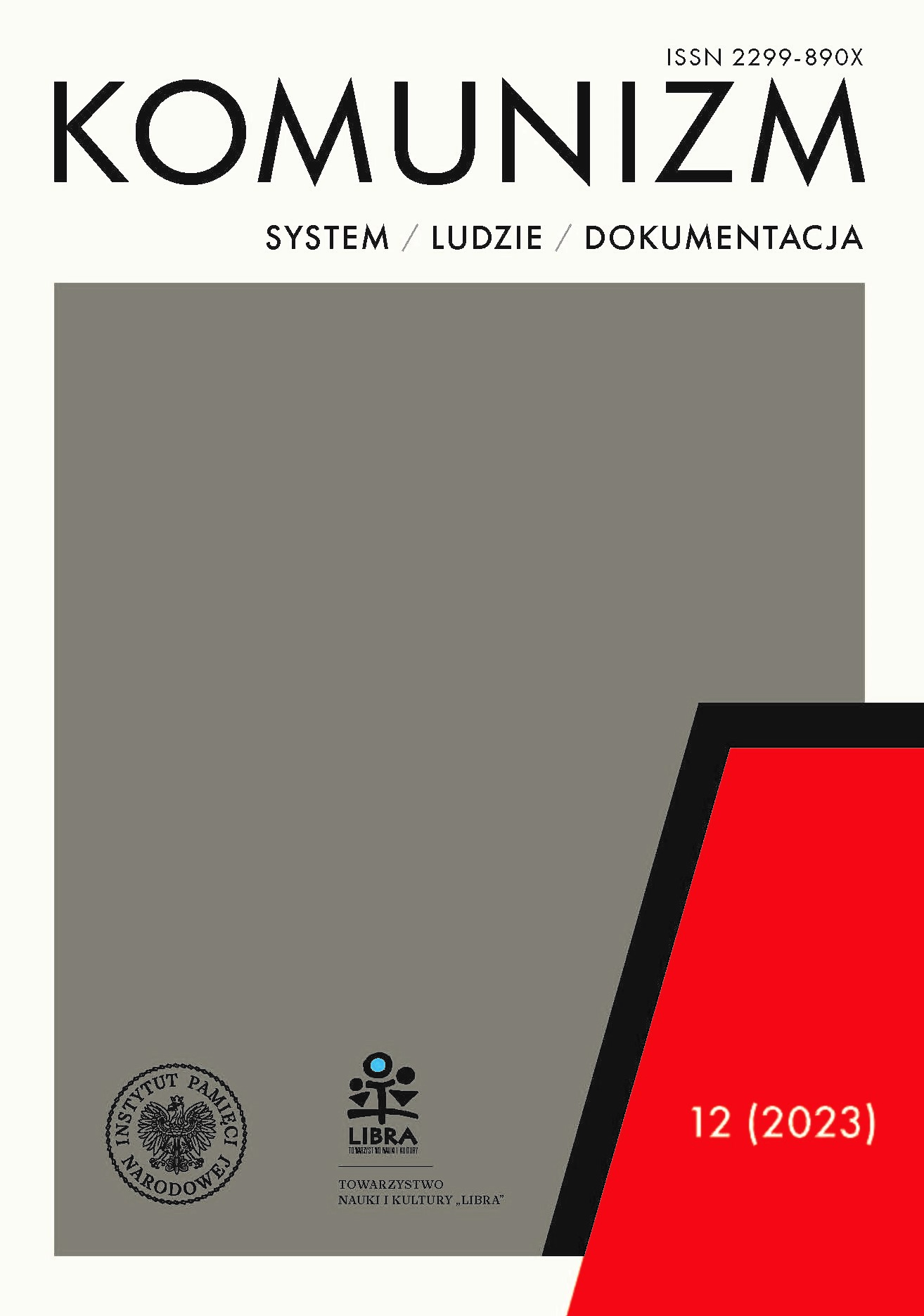Nr 12 (2023)
Przed czytelnikami kolejny, dwunasty już numer rocznika „Komunizm. System – Ludzie – Dokumentacja”. Warto podkreślić, że objętościowo, tematycznie i merytorycznie jest to tom wyjątkowo obfity. Znajdują się w nim teksty dotyczące propagandy w okresie zimnej wojny, a także artykuły z dwóch konferencji naukowych, z których jedna się odbyła, a druga nie doszła niestety do skutku z powodu pandemii, co – jak się wydaje – powinno wzmóc zainteresowanie zamieszczonymi w tomie artykułami. Głównym zagadnieniem omawianym w 12. numerze rocznika jest problematyka związana z prowadzeniem tzw. zimnej wojny, która rozpoczęła się niemal natychmiast po zakończeniu globalnego konfliktu z lat 1939–1945. Świat w szybkim tempie podzielił się wówczas na dwa, wrogo do siebie nastawione obozy, a napięcie między nimi gwałtownie eskalowało, grożąc przekształceniem się w otwarte starcie zbrojne. Ze zmiennym natężeniem zimna wojna trwała do 1991 r. Choć zdarzały się okresy przejściowego złagodzenia konfliktu (odprężenie, détente), to trwały one niedługo, a po nich następowało znowu wzmożenie wrogości między państwami socjalistycznymi a demokracjami zachodnimi. Otwarty konflikt między supermocarstwami i ich aliantami zastępowała poniekąd nieustępliwa walka w sferze propagandy. Szczególnie intensywnie wykorzystywał ją Związek Sowiecki, który we wszystkich dostępnych wówczas środkach masowego przekazu prowadził – trwającą niemal bez przerwy przez kilkadziesiąt lat – kampanię wrogości wymierzoną w przeciwników, zwłaszcza w kraje demokratyczne.
 Język Polski
Język Polski
 English
English
 Русский
Русский
 Italiano
Italiano
 Français (France)
Français (France)
 Deutsch
Deutsch
 Українська
Українська
 Čeština
Čeština


 PDF
PDF

